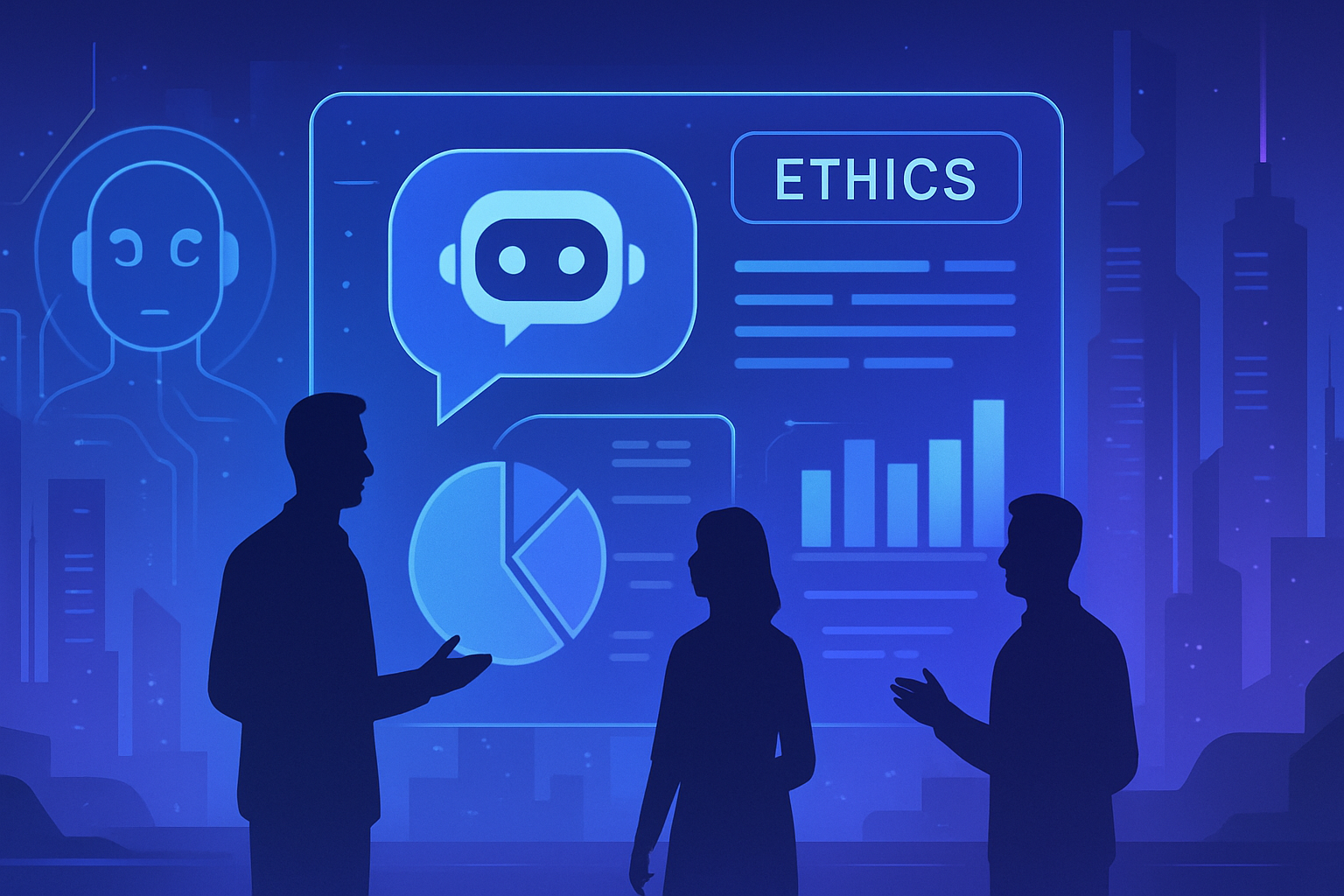Chatbots fascinate with their ability to interact with humans, a phenomenon that raises significant ethical questions. Far from being mere tools, these conversational agents influence our behavior and choices. Recent research from the D-Lab at the University of California, Berkeley, sheds light on these issues by using Reddit as an analytical terrain.
A meticulous study of moral dilemmas on the platform reveals that each language model adopts a distinct ethics, raising the crucial question of familiarity between algorithmic norms and human values. What moral orientation do these systems honor when they provide answers to users? The social implications of these differences warrant a thorough reflection on the relationship between artificial intelligence and ethical values.
Ethical differences among chatbots
Researchers at the University of California, Berkeley, revealed that artificial intelligence (AI) chatbots possess distinct ethical frameworks. By presenting thousands of moral dilemmas to language models, these researchers demonstrated significant variations in the responses provided. Each AI platform tests its own ethical criteria, thereby influencing how it guides its users.
Implications of using chatbots
A growing number of individuals are turning to chatbots, such as ChatGPT, seeking advice and emotional support. These technologies provide constant availability and often deliver thoughtful responses, thereby offering support perceived as valid. However, risks arise from entrusting moral dilemmas to these machines, which are primarily designed to maximize engagement.
The results generated by chatbots may be based on biased data, which do not always reflect the sociocultural norms of the user. Due to this disparity, the advice provided could prove harmful, potentially influencing human behavior at a societal level.
Study on Reddit and language models
To unveil the hidden norms of chatbots, Pratik Sachdeva and Tom van Nuenen turned to the Reddit forum “Am I the Asshole?” (AITA). They confronted seven language models with over 10,000 real social conflicts, asking these artificial intelligences to rule on the moral responsibility of each interlocutor.
The results revealed striking differences in the judgment of dilemmas, demonstrating how each LLM reflects distinct ethical standards. However, an interesting trend emerges: the collective judgments of chatbots often align with those of Reddit users, thereby illustrating common viewpoints on moral issues.
Analysis of chatbot responses
Researchers observed that despite their divergences, language models display a notable internal coherence in their responses. When the same dilemma was posed repeatedly, these AI-producing models tended to reiterate their previous positions. This behavior highlights underlying values and morphological norms that codify chatbot responses.
In analyzing the responses, it was found that certain models, like ChatGPT-4 and Claude, showed greater sensitivity to emotions compared to others, preferring justice and harms over honesty. Revelations such as this raise questions about the nature of values embedded in AI systems and their impact on the evaluation of moral conflicts.
Ongoing research on LLM ethics
Researchers are engaging in further studies examining how chatbots interact with one another when evaluating moral dilemmas. They noted that certain models, like GPT versions, show resistance to modifying their judgments even in the face of criticisms from other models. These observations enrich the understanding of the ethical processes adopted by LLMs.
Ongoing studies also aim to promote greater transparency in the design and development of AI models. Researchers encourage critical reflection from users regarding their dependence on chatbots, emphasizing the importance of a human approach in decision-making.
Attention to these issues raises a broader ethical debate on the reasonable use of AI technologies, particularly regarding moral dilemmas. Considering the impact of technologies on our behaviors and beliefs represents a fundamental concern that humanity must address.
Links and additional resources
To delve deeper into this topic, several related articles can be consulted:
- Regulation of AI technologies
- Judicial case and AI
- AI incubators and innovations
- Digital ethics
- User experience and AI
Frequently asked questions
How do chatbots react to moral dilemmas?
Chatbots evaluate moral dilemmas based on their programming and the data they have been trained on. They apply norms and values that may vary from one model to another.
Why use Reddit to study chatbot ethics?
Reddit, particularly the “Am I the Asshole?” forum, provides a rich platform for real moral dilemmas, allowing researchers to analyze how chatbots respond to complex situations based on authentic human interactions.
Do all chatbots share the same ethical values?
No, each chatbot has its own biases and ethical norms, as they learn from different datasets. This can lead to divergent opinions on similar dilemmas.
Are chatbot verdicts reliable?
Although chatbots attempt to formulate judgments based on ethics, their responses may be influenced by biases present in the training data, raising questions about their reliability.
What biases can be found in chatbot responses?
Biases may include a tendency to favor certain moral responses, such as sensitivity to justice or emotions, but also inaccuracies concerning honesty or other ethical values.
How do researchers evaluate chatbot ethics?
Researchers analyze chatbot responses to moral dilemmas and compare them with those of Reddit users to identify differences in judgments and ethical norms.
Could chatbots influence our moral behavior?
Yes, by providing advice or judgments based on their ethical norms, chatbots can shape how users perceive moral dilemmas and therefore influence their behaviors.
What are the consequences of frequent interaction with ethical chatbots?
Frequent interaction with chatbots may lead to a weakening of direct human decision-making, as users might become overly dependent on technological advice instead of developing their own moral judgment.
Why is transparency in chatbot development important?
Transparency allows for an understanding of how chatbots have been trained and what data influenced their responses, which is crucial for assessing their ethics and avoiding harmful biases.






